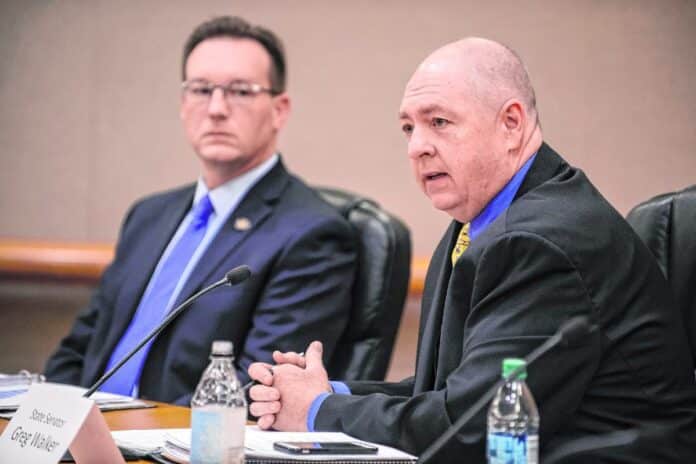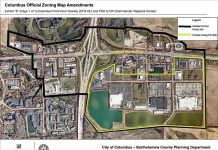
COLUMBUS, Ind. — Educators and community members will have a chance to ask their state legislators about bills pertaining to education in a special Third House session.
Rep. Ryan Lauer (R-Columbus), and Sen. Greg Walker (R-Columbus), will attend the session virtually at 9 a.m. Saturday.
The event, which will focus specifically on education-related legislation, is being co-hosted and moderated by the Columbus Educators Association and the Bartholomew County Retired Teachers Association.
“We are grateful that Representative Lauer and Senator Walker made time in their busy schedules to talk specifically about education legislation with their community,” said CEA President Amy London in an official statement. “Our members aren’t often able to attend Third House meetings scheduled by the Chamber of Commerce because they always take place during our regular school day.”
According to the CEA, any member of the public can attend the event, which is expected to last one hour, and registration is required. To register in advance, visit http://bit.ly/eduthirdhouse. After signing up, you will be emailed a Zoom link for the session.
CEA second vice president Dakota Hudelson said the event will be able to support up to 500 attendees. He said that the Indiana State Teachers Association is providing logistical support needed to hold the virtual event, which will be hosted using the Zoom account of the area’s UniServ director, Janet Abrams.
After a discussion of legislation, moderators will read questions submitted by viewers. Attendees can send questions to either teachers’ association ahead of time or submit their questions during the event itself through the “chat” function.
In budget talks this legislative session, Republicans with a super majority in both chambers are planning to allocate more than one third of the proposed state funding hike for Indiana schools to the state’s private school voucher program, a move that will boost the voucher program’s cost by nearly 50% over two years.
Republicans tout their proposal as giving parents more choices over how to educate their children, while Democrats and other opponents argue that it further drains funding from traditional school districts while they are struggling to find ways to boost the state’s lagging teacher pay.
Overall, House Republicans propose increasing the base funding for K-12 schools by 1.25% during the first year and 2.5% in the second year of the new budget that would start in July. That would mean about $378 million more for total school funding over the two years — with about $200 million going to traditional public schools that have about 1 million students.
Lauer has also sponsored legislation which has been approved in the House that builds on a 2011 law establishing Indiana’s Choice Scholarship Program. Lauer said he believes education funding “follows the child” and the legislation he is proposing would allow more students to attend a school that best meets their academic, medical or social needs, whether a traditional public school, public charter school, virtual school or private school.
The state’s choice scholarship program was created to help students from low-income families attend an accredited private school, according to the 2011 legislation. Lauer’s bill would change the low-income requirement by providing 90 percent tuition support for every qualifying family while increasing the income threshold, making more families with higher incomes eligible for the tuition support. The bill increases income eligibility for the program to a family of four earning $145,000 annually in 2022.
Bartholomew County voters approved a referendum to better fund Bartholomew Consolidated School Corp., a public school corporation, with the increased tax rate going into effect this spring.
The referendum is expected to raise $7.48 million this year that will result in increases in salary and benefits for teachers, non-certified staff members and security staff. Equipment and professional services for safety and security will also be purchased, as well as new school buses as part of a multi-year bus replacement plan.
With the exception of the Flat Rock-Hawcreek area, property owners will pay an increase of between 16 to 17-cents per $100 of assessed valuation, Bartholomew County Auditor Pia O’Connor said. These figures reflect 2020 property taxes that are payable in spring and fall installments this year.
During the 2020 primary, the Bartholomew Consolidated School Corp. property tax referendum received approval from 61.33% of local voters, which raised the BCSC tax rate by $0.1560.
“This Saturday will be a great opportunity for the public to hear from our legislators about the one topic that we should all care about most of all: the education of our children,” said BARTA President Lynne Fleming in an official statement. “People don’t realize how retired teachers are impacted by current legislation too, so we’re looking forward to this opportunity to talk with current teachers and our legislators.”
— The Associated Press contributed to this story.




